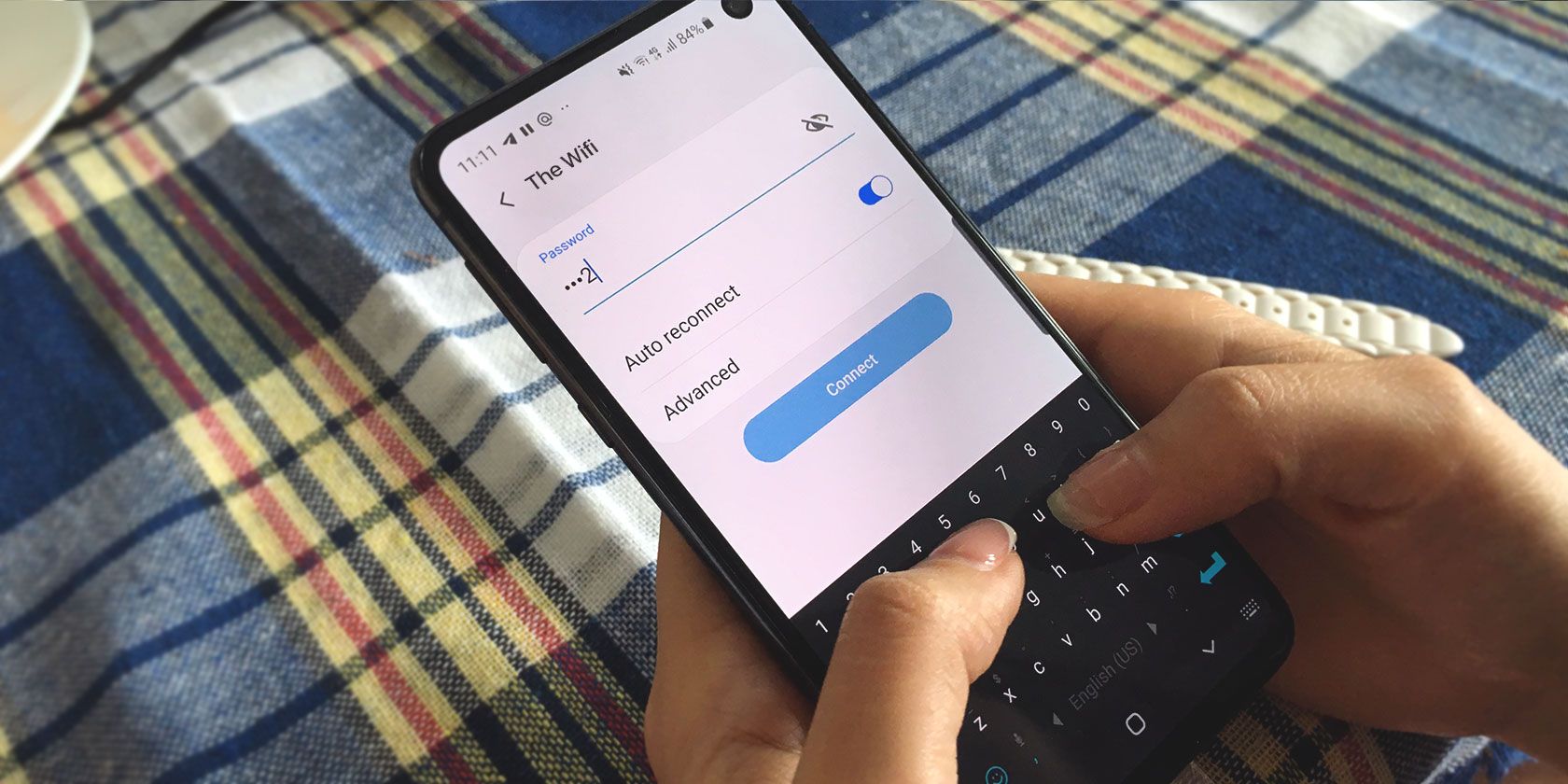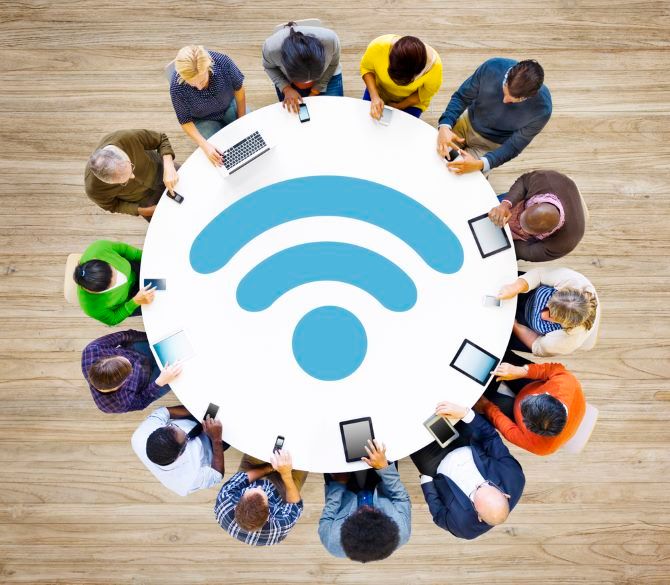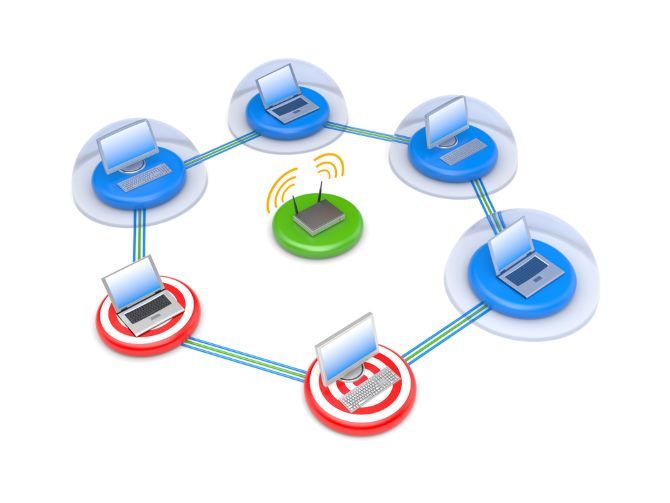As more of our daily lives move onto the internet, you may be asked by someone else to share your Wi-Fi password with them. While it may seem rude to say "no," some risks come with allowing someone access to your router.
Let's look at why someone may ask you for your details, what might happen if you let them on, and some solutions to this problem.
Why People Share a Wi-Fi Connection
Giving Guests a Broadband Connection
When you have friends or family over, they may want to show you a funny video or download files without eating up their data plan. As such, they'll ask you for your Wi-Fi details so they can use your broadband connection. It's very easy to share a Wi-Fi password from one iPhone to another.
Of course, a good friend or member of the family has no ill intent to harm you. Unfortunately, there are still problems that come with sharing your details with loved ones.
Neighbors Wanting to Share
Let's say you've just set up a Wi-Fi connection in your home. Soon after, you hear a knock at the door. It's your neighbor, and they've noticed your Wi-Fi connection popping up on their computer.
They get a pretty strong signal from it despite being in another house, and they ask you if you're willing to share. They'll sometimes add a bonus to sweeten the deal, such as paying half of your monthly internet fee.
Neighbors typically do this if they don't want to shell out for a full broadband package---perhaps they don't believe they'll use it as often to justify the cost. There may also be shady types who want to exploit your generosity to further their own goals.
Businesses Wanting to Supply Customer Wi-Fi
Every café and bar around the world have public Wi-Fi by now---so how can business owners skimp on this feature? Many businesses use a public Wi-Fi hub to give their customers that extra bit of value. This, unfortunately, comes with its own share of problems.
How Sharing Your Wi-Fi Password Can Harm You
People Can Perform Illegal Downloads on Your Wi-Fi
Let's say you shared your network details with your neighbor in exchange for half the monthly fee. This deal seems like a charitable thing to do at first; however, consider what would happen if your neighbor performs illegal activities on your network.
If the police catch your neighbor performing illegal downloads, they'll trace the IP of whoever is downloading the file. They then contact the ISP that owns that IP address to find out who owns it.
Unfortunately, because it's your connection they're using, the police will see your details. You'll then have a surprise visit from the police over a crime you never committed!
While you may be able to prove that the download was your neighbor's doing, the police will still ask why you compromised your network security in the first place. As such, it's best to prevent strangers from accessing your network.
Malware Can Spread Through Infected Devices
While giving your details to a stranger is a bad idea, what if you wholly trust the person asking? What if it was a good friend or family member who'd never want to take advantage of your generosity?
Even here, you have to be careful with who you allow on the network. Let's say your friend comes over with his smartphone, which has recently been infected by a strain of malware. It's working in the background, so he has no idea about the infection.
By connecting to your Wi-Fi, your friend is giving the malware a new avenue through which it can spread. It may attack your computers, phones, and tablets as it spreads around your network.
Users Can Snoop on Connections
By allowing someone access to your network, you're giving them access to a system where data comes in and out. A tech-savvy person can exploit this to see what the users on the network are doing.
If you own a business that offers a public Wi-Fi service, hackers can use it to steal the identities of its users. Without proper precautions set up, a hacker will use your Wi-Fi as a prime hunting ground for taking valuable data.
Sharing Can Get You Blocked From Websites and Games
If the people you're sharing with act foully online, they may get banned from websites and online video games. Sometimes, this is just an account-based ban, which shouldn't affect your ability to connect to that service.
Sometimes, however, a user can misbehave so much that the admins decide to do an IP ban. Unfortunately, because the miscreant used your internet connection, this affects you too!
Fortunately, IP addresses are dynamic these days, so you can power-cycle your router and receive a new IP address. This then gets you unbanned from the service. This trick does, however, also unban the miscreant, who can return and cause more havoc until that IP address is banned too!
They May Hog Your Data and Bandwidth
If you're on a strict data cap, you may find yourself hitting that cap more often while sharing. To avoid hitting the limit, the people you're sharing with will need to know that your connection is capped, as well as how much data they use while on it. If they don't keep tabs on either of this, you might be getting angry letters from your ISP.
They Could Use Other Networked Devices
Let's say you want to set up a Wi-Fi connected external hard drive. No need to plug it in via USB; simply drag your files to the drive over your Wi-Fi connection. But what if you are sharing this network? Now you have to set up security on all of your connected devices to prevent someone else gaining access to them.
By keeping your network private, it gives you the freedom to add devices to it without worrying about your neighbor snooping on them.
How to Share Your Wi-Fi the Smart Way
Use a Guest Network
Some routers come with an optional "guest network" you can enable, and is one of the several essential router features you can turn on. Guest networks work identically to regular network usage, except it gives visitors a separate connection and keeps them off your primary Wi-Fi network. You can then freely give out the passcode to your guest network without worrying about them being on your primary one.
While this is great for preventing people from accessing your network's central hub, it doesn't tackle people using up bandwidth or visiting illegal sites. As such, only give guest access to people you trust!
Keep Personal Details of Every User
Asking for personal details isn't something you can realistically do on your home router. If you're a business owner, however, definitely look into getting the personal information of people who connect to your public Wi-Fi.
Have you connected to a Wi-Fi hotspot, only for it to ask for your email and personal information? This feature is a precaution set up to catch people performing illegal activities. If the authority does get involved, the Wi-Fi host has all the information they need to pass the details on and find the criminal.
Keeping Your Wi-Fi Secure
You may feel obliged to share your Wi-Fi details, but you should always be careful with who receives your details. If you're not careful, you may get into far more trouble than if you merely declined!
Learn more about how to toughen up your Wi-Fi password so you can secure your network even more.



